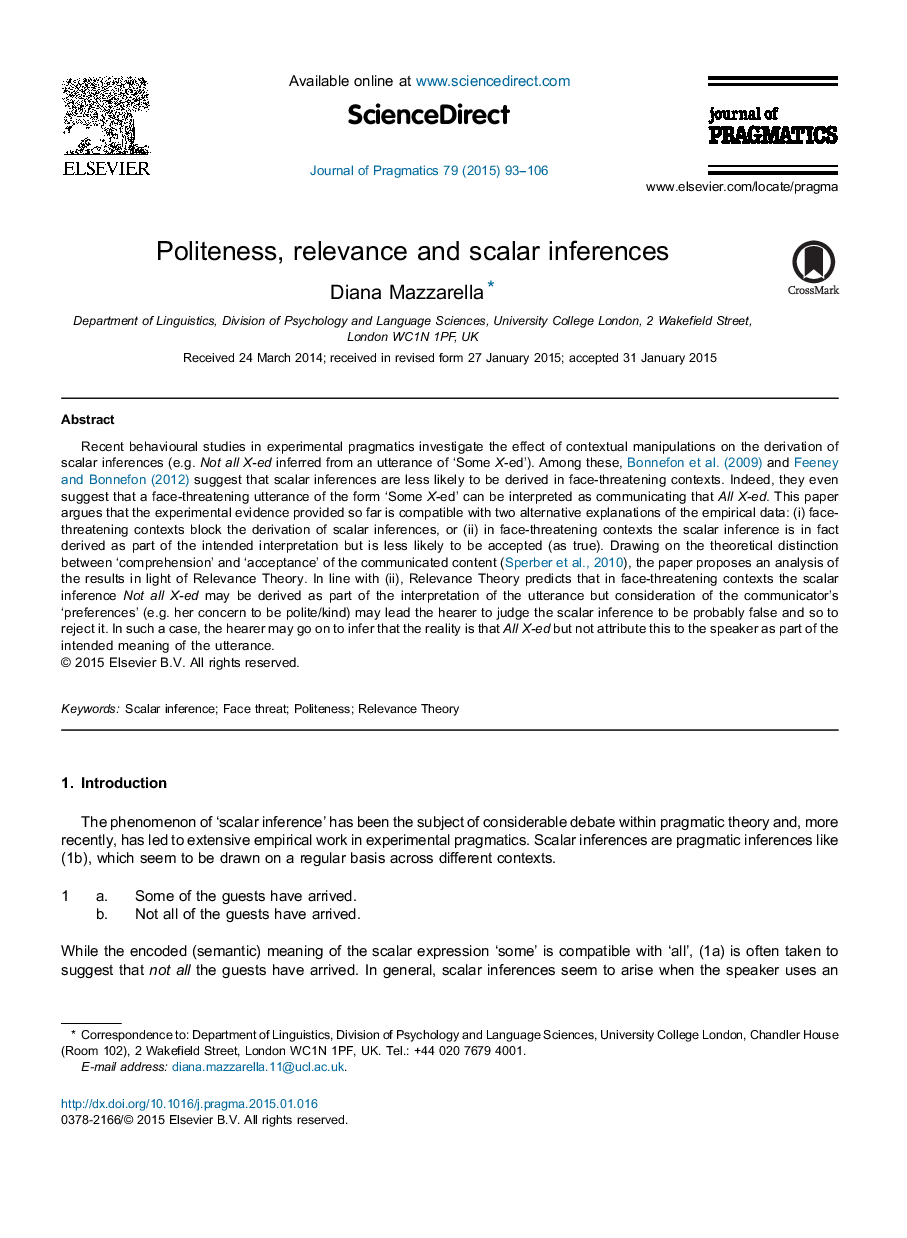| کد مقاله | کد نشریه | سال انتشار | مقاله انگلیسی | نسخه تمام متن |
|---|---|---|---|---|
| 932640 | 1474721 | 2015 | 14 صفحه PDF | دانلود رایگان |
• Comprehension and acceptance must be distinguished in experimental pragmatics.
• Politeness is a factor affecting the believability of scalar inferences.
• In face-threatening contexts addressee may fail to accept scalar inferences as true.
Recent behavioural studies in experimental pragmatics investigate the effect of contextual manipulations on the derivation of scalar inferences (e.g. Not all X-ed inferred from an utterance of ‘Some X-ed’). Among these, Bonnefon et al. (2009) and Feeney and Bonnefon (2012) suggest that scalar inferences are less likely to be derived in face-threatening contexts. Indeed, they even suggest that a face-threatening utterance of the form ‘Some X-ed’ can be interpreted as communicating that All X-ed. This paper argues that the experimental evidence provided so far is compatible with two alternative explanations of the empirical data: (i) face-threatening contexts block the derivation of scalar inferences, or (ii) in face-threatening contexts the scalar inference is in fact derived as part of the intended interpretation but is less likely to be accepted (as true). Drawing on the theoretical distinction between ‘comprehension’ and ‘acceptance’ of the communicated content ( Sperber et al., 2010), the paper proposes an analysis of the results in light of Relevance Theory. In line with (ii), Relevance Theory predicts that in face-threatening contexts the scalar inference Not all X-ed may be derived as part of the interpretation of the utterance but consideration of the communicator's ‘preferences’ (e.g. her concern to be polite/kind) may lead the hearer to judge the scalar inference to be probably false and so to reject it. In such a case, the hearer may go on to infer that the reality is that All X-ed but not attribute this to the speaker as part of the intended meaning of the utterance.
Journal: Journal of Pragmatics - Volume 79, April 2015, Pages 93–106
